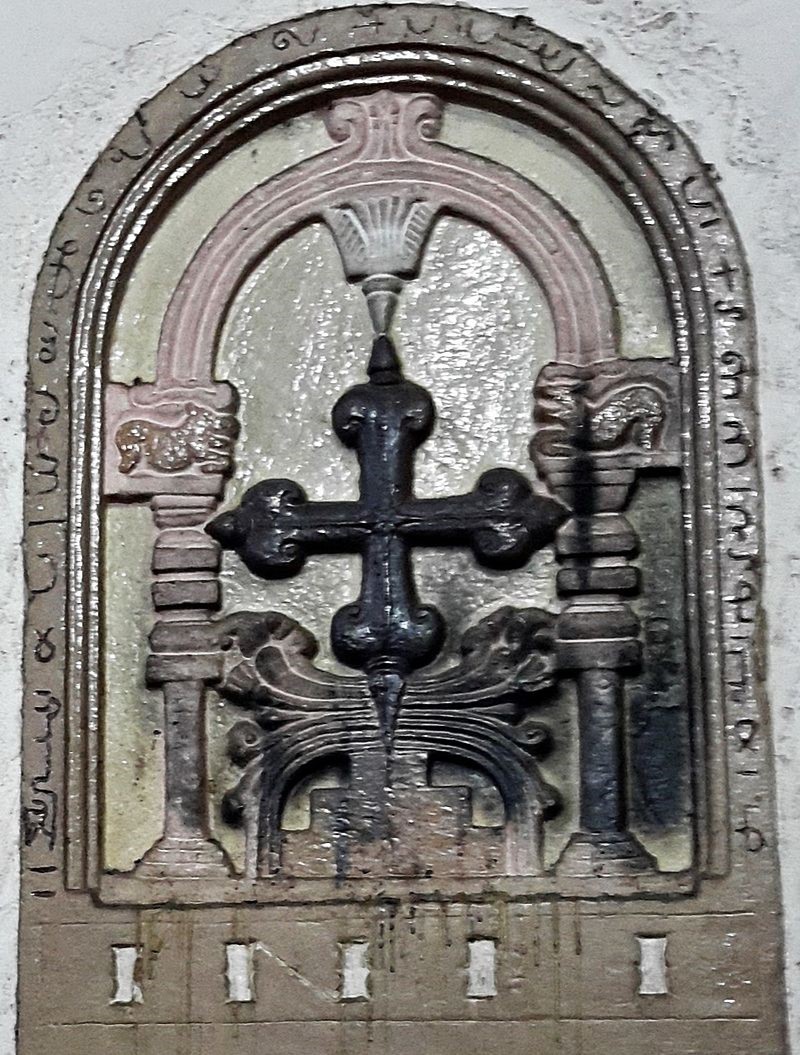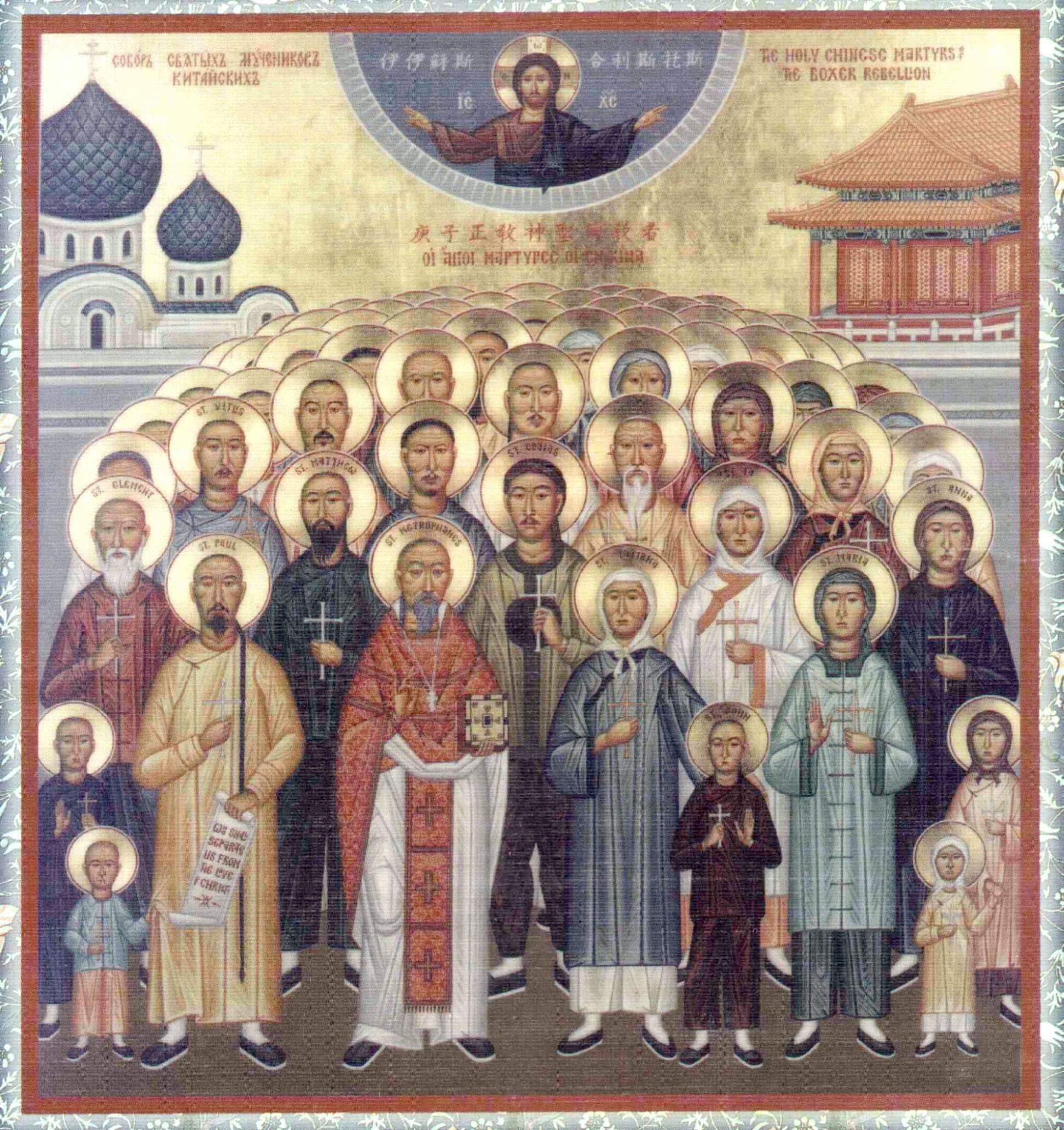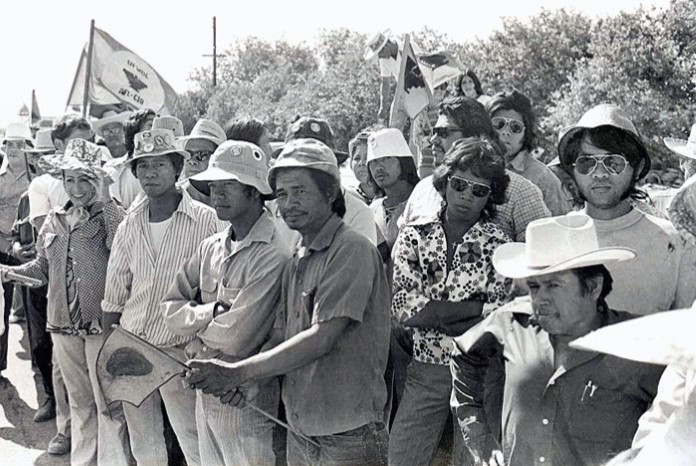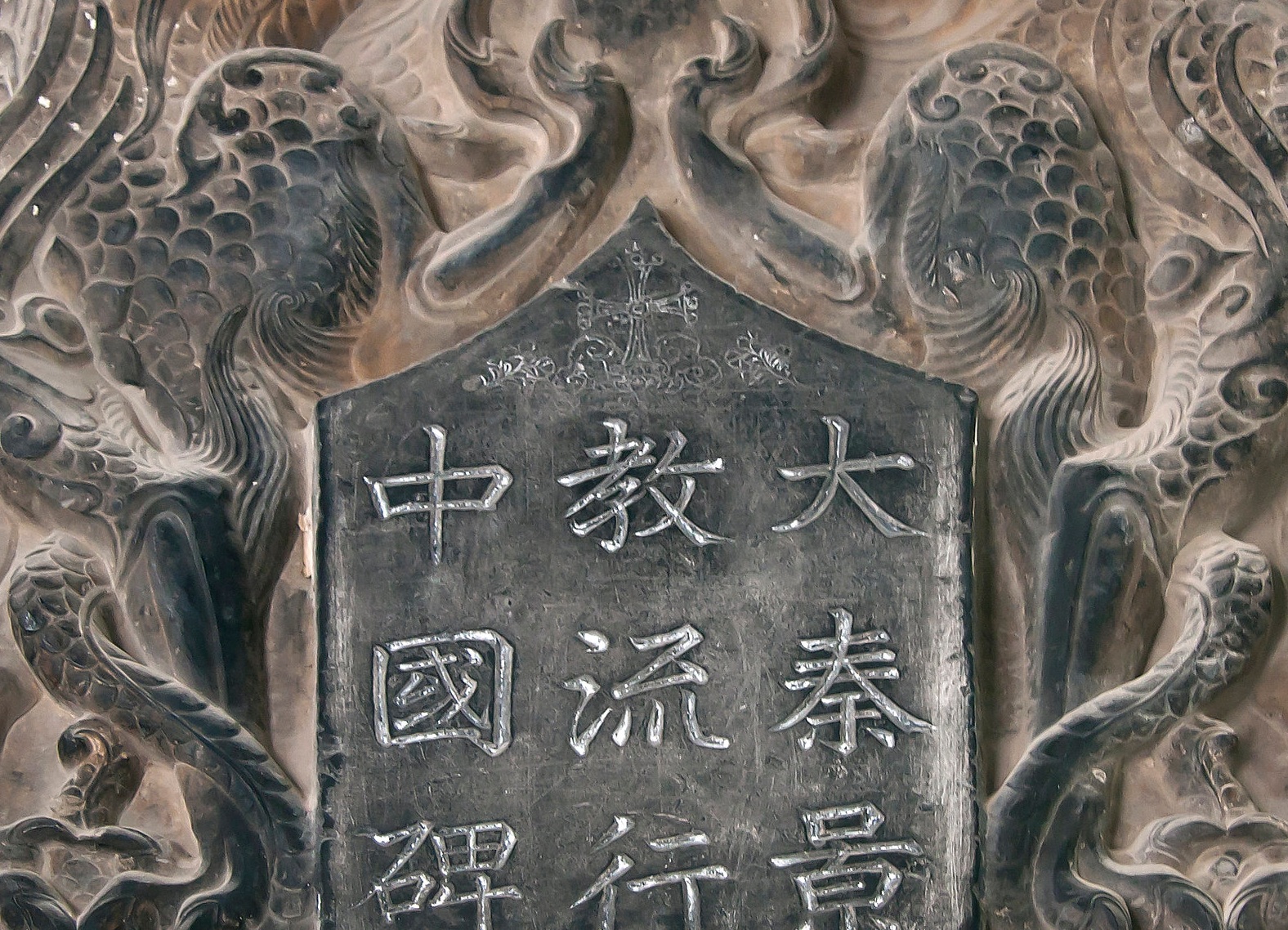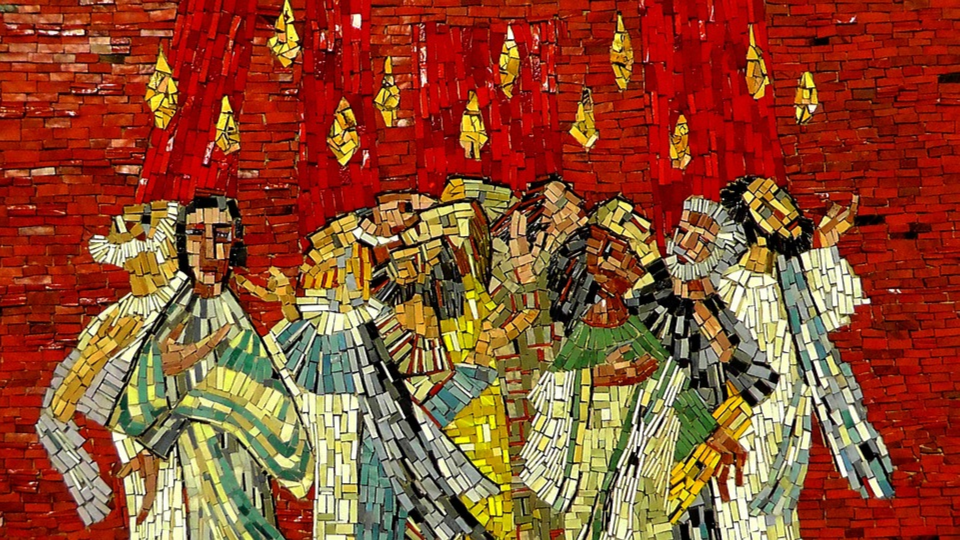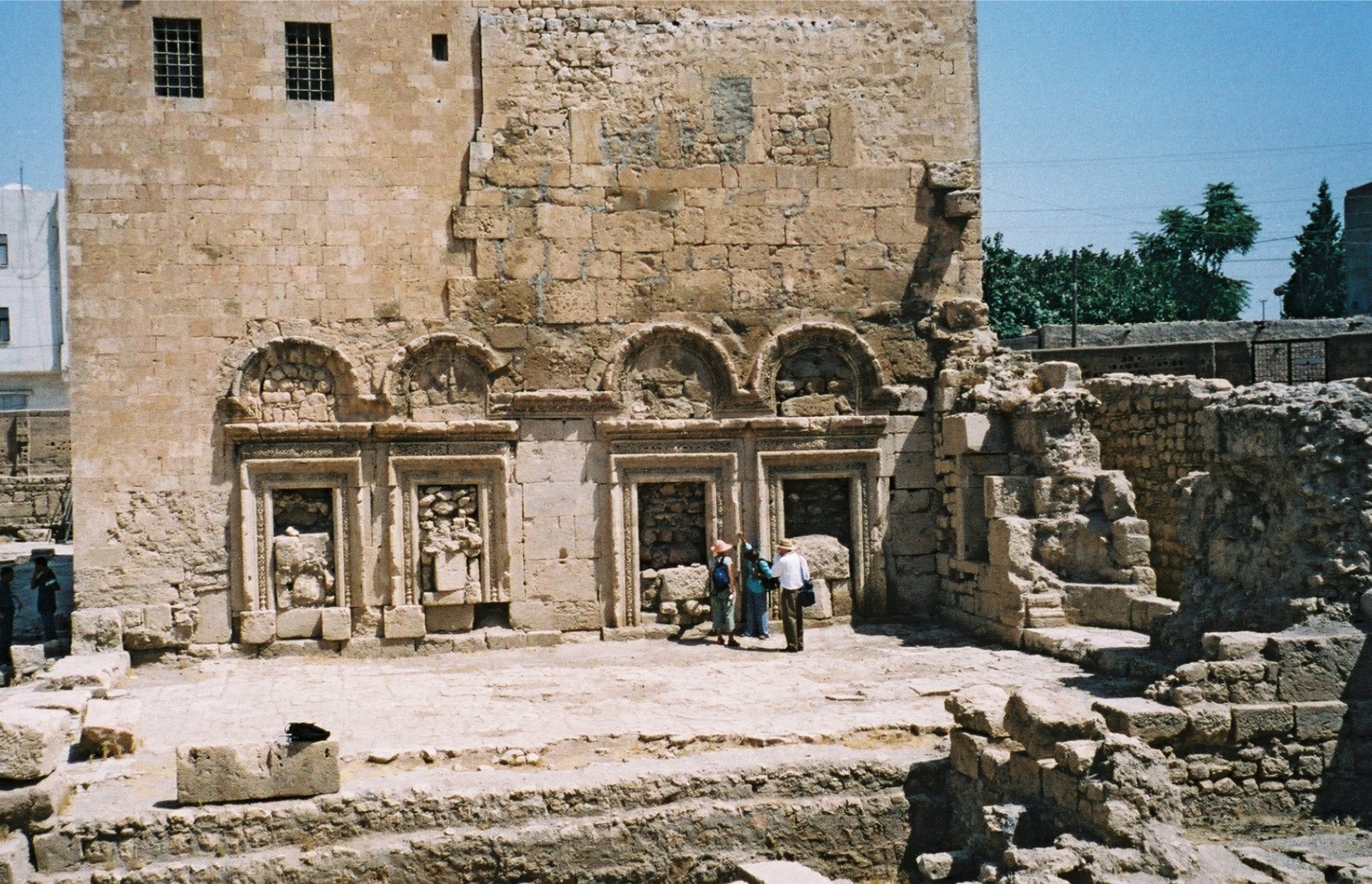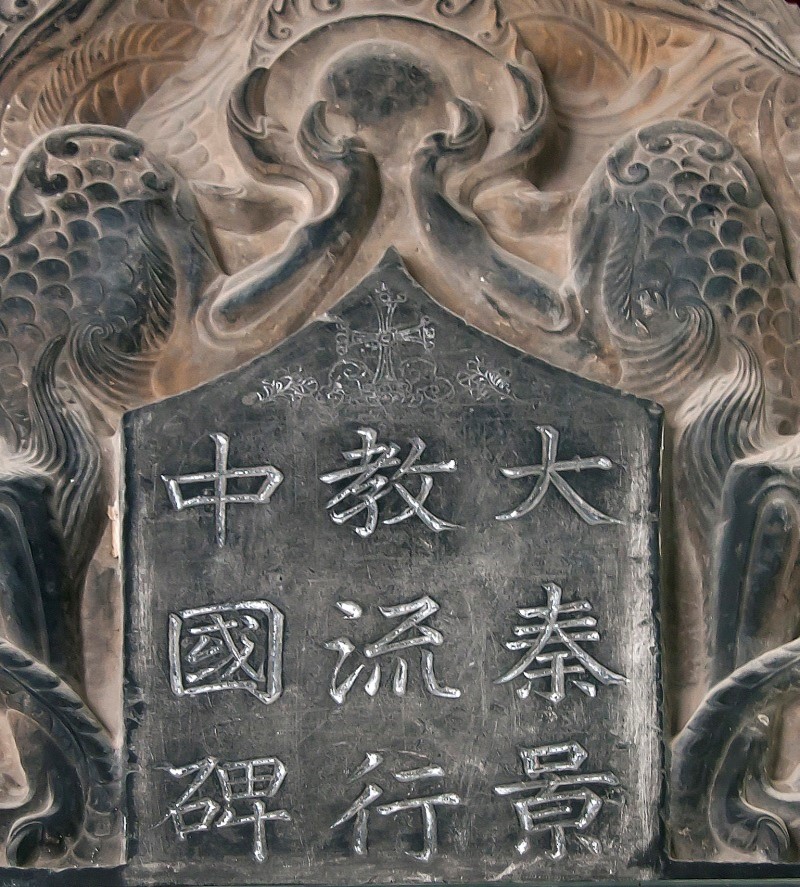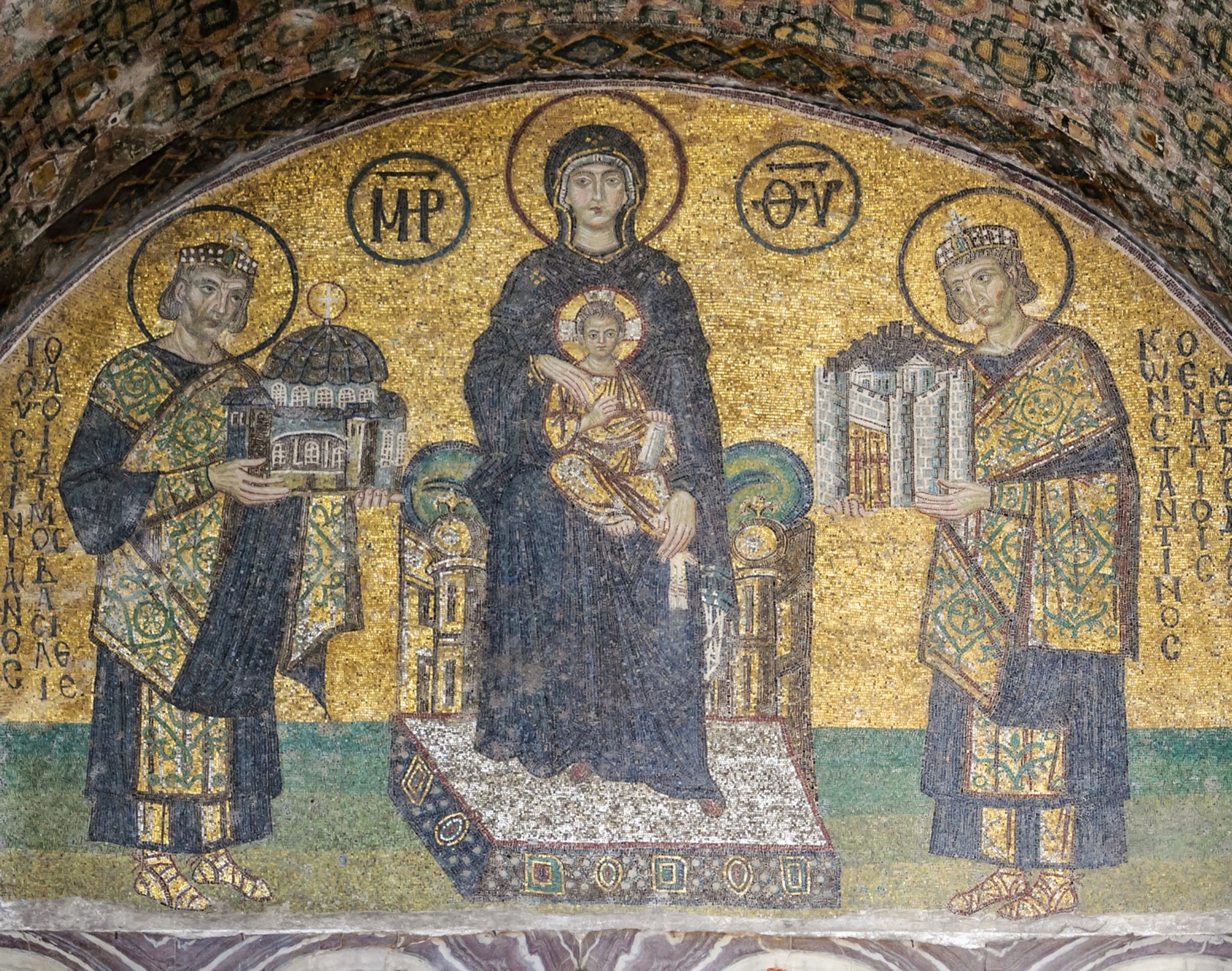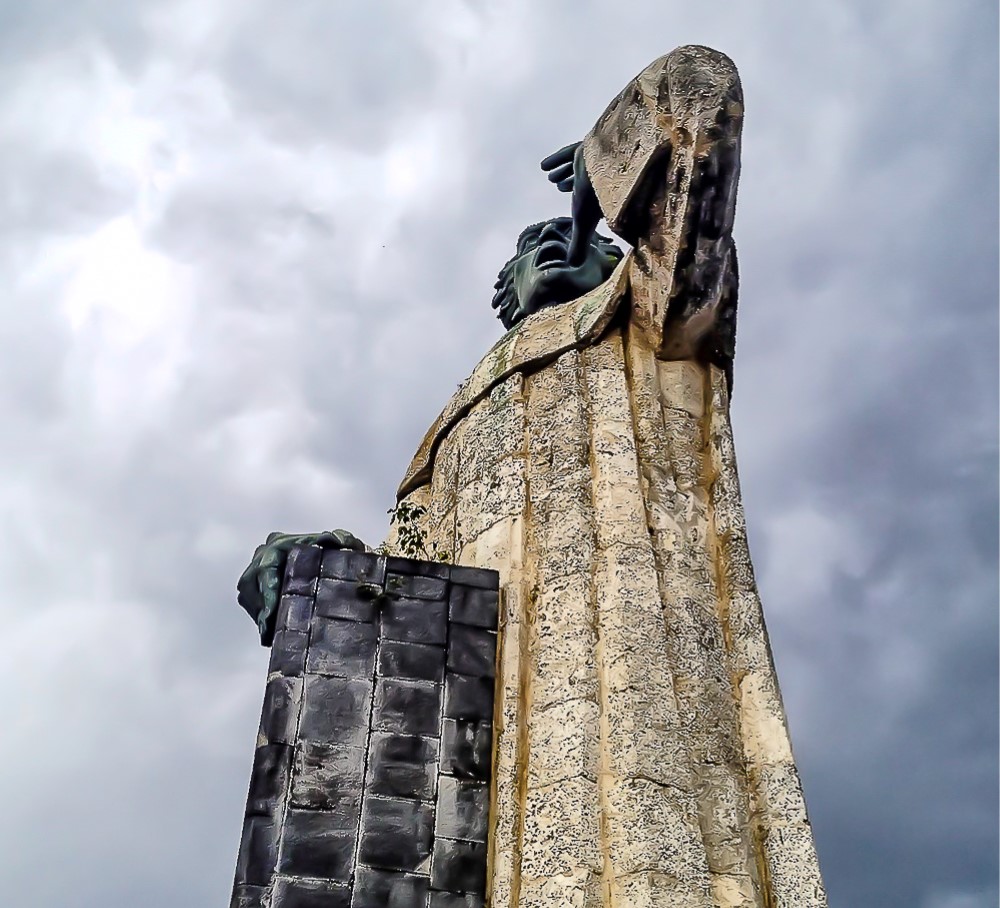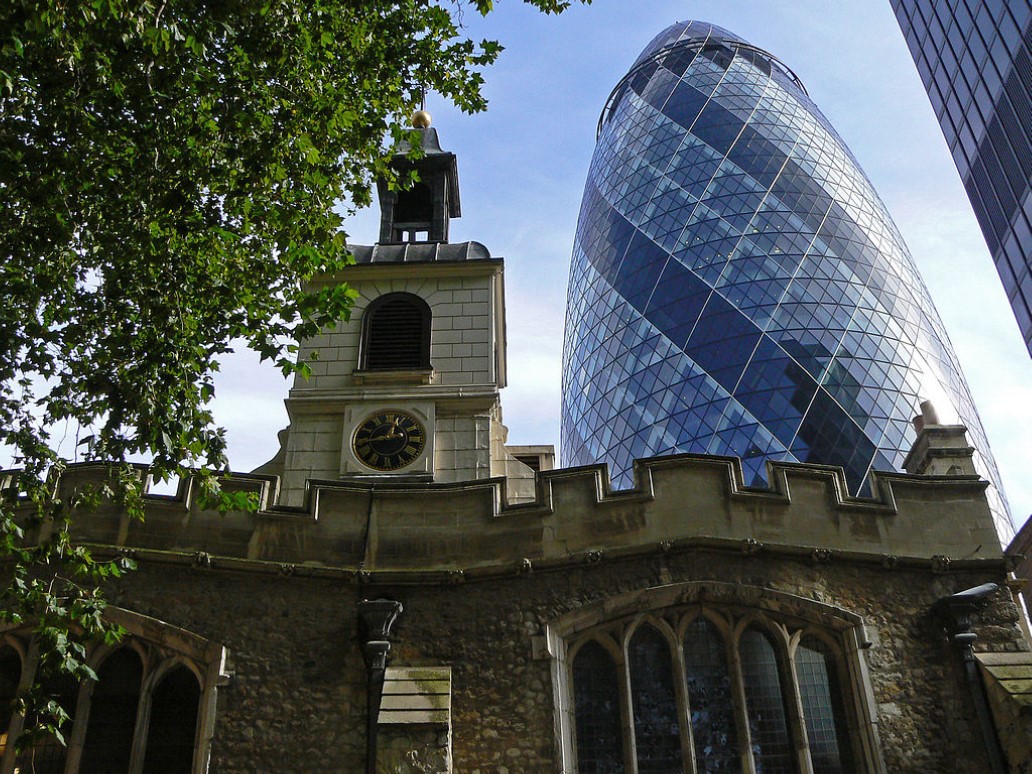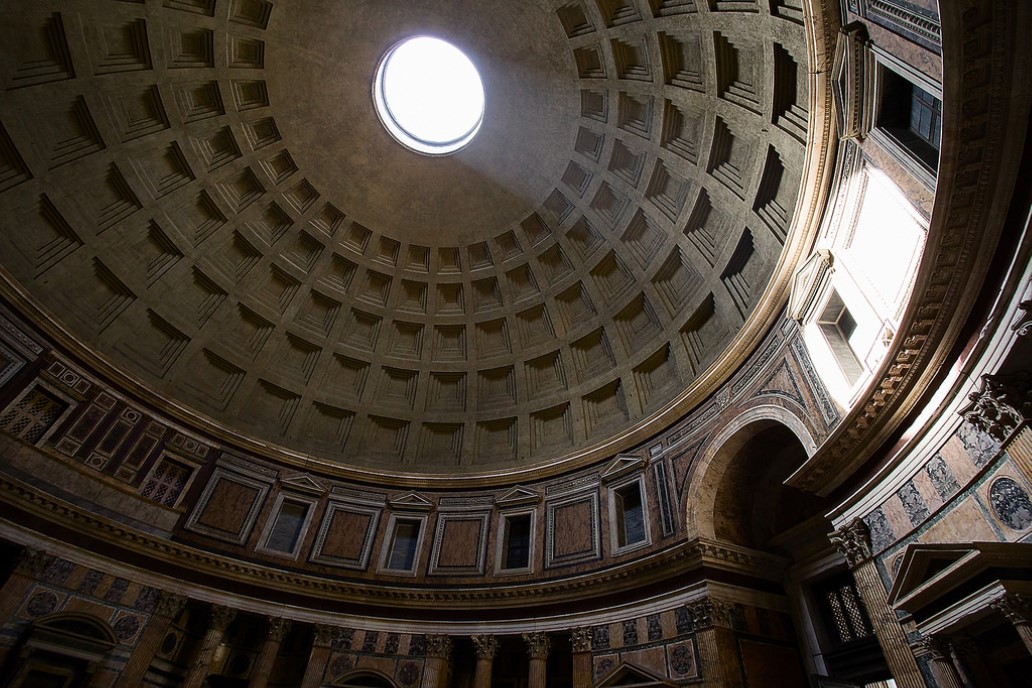The Church in Asian America
Untold Stories of Church and Empires
Photograph: Labor strike from the Coachella picket line labor strike. Photo credit: Carlos LeGerrette and the Farm Worker Movement Documentation Project, UCSD Library. The very successful Delano Grape Strike began when Filipino laborers walked off the field in Delano (Kern County) on September 8, 1965. They were encouraged by other Filipino-American laborers who won a wage increase during the summer of 1965 in Coachella in Riverside County, California. Mexican-American laborers joined them two weeks later, formed the United Farm Workers, and were joined later by Japanese-American farm workers. Marchers carried a large wooden cross and the Virgin of Guadalupe, reflecting the presence of Catholic social justice convictions held by the laborers themselves, and labor leaders Philip Veracruz, Dolores Huerta, and Cesar Chavez. The Delano strike began the most successful labor movement in American history, which coincided roughly with the Civil Rights Movement and the anti-Vietnam War movement. These movements addressed three major injustices and heresies held by American evangelicals: capital over labor and land, white over non-white people, and American imperialist interests over other countries. This photo above comes from a later date in 1973, from the Coachella picket line.
Introduction
The selection of perspectives on church history in this section — Church and Empire — has been guided by three factors: (1) to demonstrate that Christianity has not been a “white man’s religion”; (2) the study of empire as a recurring motif in Scripture by recent biblical studies scholars; and (3) explorations of biblical Christian ethics on issues of power and polity, to understand how Christians were faithful to Christ or not. Christian relational ethics continues a Christian theological anthropology that began with reflection on the human nature of Jesus, and the human experience of biblical Israel.
This page explores how Christians of Asian descent related to political power in the U.S.
Messages and Resources on the Church in Asian-America
The Role of Jesus in Revolution and the Pursuit of Justice
Text of an evangelistic message that highlights the Christian-led and Christian-influenced non-violent resistance movements throughout the world in the 20th century. They show the connections and spiritual vitality of Christian faith under empire or empire-like oppression. Highlights the Korean Independence Movement against Imperial Japan, the Indian Independence Movement against Imperial Britain, and the Filipino People Power Movement against the U.S.-backed dictator Ferdinand Marcos.
Jesus in the Indian & Indian-American Experience (tbd)
Reflections on the Japanese Theology of Jesus' Suffering (TBD)
How Jesus Atones for My Shame (Honor-Shame blog, Nov 11, 2015)
A short summary of the presentation below
Why Penal Substitution Damages Asian-Americans
A presentation contrasting guilt-oriented and shame-oriented persons, and how they tend to interact with two different atonement theories: penal substitution and medical substitution. See the Atonement section for more resources and explanations.
Medical Substitutionary Atonement, Personal Healing, and Social Justice
A presentation given at the Honor-Shame Conference 2017, a gathering of missionaries, scholars, and ministry practitioners, and short Youtube video (4.5 min)
Stories and Spirituality: How the God Engages Human Evil
A comparison of three different views, in table format: transcend it mentally, heal human nature, or external laws
Stories and Spirituality: About How the God Relates to Us
A comparison of three different views, in table format: full contact pantheism, centered point of contact in a human being, no point of contact
Other Resources on the Church in Asian-America
HonorShame (website) resources for Majority World ministry
Inheritance: The Intersection of Faith and Culture (website)
Fuller Seminary Asian-American Center (website)
Lester E. Suzuki, Ministry in the Assembly and Relocation Centers of World War II. Yardbook Publishing | Amazon book, 1979. Recounts both Buddhist and Christian ministries in the Japanese-American incarceration camps
Jung Young Lee, Marginality: The Key to Multicultural Theology. Fortress Press | Amazon book, 1995. Lee makes the case pastorally that no one culture should predominate in the Christian community
Jung Ha Kim, Bridge-Makers and Cross-Bearers: Korean-American Women and the Church. Oxford University Press | Amazon book, 1997. Kim offers a very important history of Korean immigration to the U.S. and cultural comparisons between Korean and Korean-American communities, along with Confucian and Christian influences on women's experiences
Peter C. Phan, Journeys at the Margin: Toward an Autobiographical Theology in American-Asian Perspective. Liturgical Press | Amazon book, 1999. Phan explores the role of being between two cultures, both in and beyond, and how that impacts the Christian experience
Jung Ha Kim and Pyong Gap Min, Religions in Asian America: Building Faith Communities: Building Faith Communities. AltaMira Press | Amazon book, 2002.
Kenneth L. Guest, God in Chinatown: Religion and Survival in New York's Evolving Immigrant Community. NYU Press | Amazon book, 2003.
Russell Jeung, Faithful Generations: Race and New Asian American Churches. Rutgers University Press | Amazon book, Oct 2004.
Peter C. Phan, Vietnamese-American Catholics. Paulist Press | Amazon book, 2005.
Marco G. Prouty, Cesar Chavez, the Catholic Bishops, and the Farmworkers' Struggle for Social Justice. University of Arizona Press | Amazon book, Sep 15, 2006. Significant to Asian-Americans because the labor strikes began with Filipino-American workers
J.R. Minkel, Confirmed: The U.S. Census Bureau Gave Up Names of Japanese-Americans in WW II. Scientific American, Mar 30, 2007.
Soong-Chan Rah, The Next Evangelicalism: Freeing the Church from Western Cultural Captivity. InterVarsity Press | Amazon book, 2009.
Soong-Chan Rah, Many Colors: Cultural Intelligence for a Changing Church. Moody Press | Amazon book, 2010.
Brene Brown, Listening to Shame. Ted Talks, Mar 2012.
Russell Yee, Worship on the Way: Exploring Asian North American Christian Experience. Judson Press | Amazon page, Apr 2012.
Jeffrey P. Greenman and Gene L. Green, Global Theology in Evangelical Perspective: Exploring the Contextual Nature of Theology and Mission. InterVarsity Press | Amazon book, 2012.
Robert Woodberry, The Missionary Roots of Liberal Democracy. American Political Science Review, May 2012. See review by Andrea Palpant Dilley, The Surprising Discovery About Those Colonialist, Proselytizing Missionaries. Christianity Today, Jan 8, 2014.
Joseph Ho, The Legacy of the Immigrant Church. InterVarsity Christian Fellowship Urbana Conference, Urbana 2012. Video.
Paul Matsushima, Seek Justice: A Chinese and Japanese American Christian Response to Social Justice. Paul Matsushima blog, Sep 10, 2012. "This article examines how Asian American Christians in Los Angeles County have applied their faith to social justice. Using literature-based research and interviews with 16 Chinese and Japanese American Christians, the author discovers that Asian American Christians pursue social justice on four levels. First, the interviewees are involved in social justice because of their self-identification as racial minorities and because of the teachings of Jesus Christ and the Bible. Second, a Christian love drove many to build relationships with others. Third, the development of relationships allowed for the increased ability to form solidarity with racially and socioeconomically diverse groups. Finally, some pursue systemic justice through public policy to effect long term change."
Gwen Dewar, Is Your Child Securely Attached? The Strange Situation Test. Parenting Science, 2008 - 2014. fascinating cross-cultural study of child bonding to parents, noting Asian especially
Jenn Fang, 10 Examples of AAPI’s Rich History of Resistance. Reappropriate blog, Jan 15, 2014.
Sam Louie, Asian Shame and Honor: A Cultural Conundrum and Case Study. Psychology Today, Jun 29, 2014.
Soong-Chan Rah, Prophetic Lament: A Call for Justice in Troubled Times. InterVarsity Press | Amazon book, 2015.
Jackson Wu, 4 Keys to Evangelism in Honor-Shame Cultures. Christianity Today, Mar 2, 2015.
Hilary Jacobs Hendel, It's Not Always Depression. New York Times, Mar 10, 2015. about shame stemming from a lack of connection
Andy Crouch, The Return of Shame. Christianity Today, Mar 10, 2015.
Korea On Demand, Traces of Jesus, Part 1: Foreman Samuel Moore. Korean OnDemand, Mar 31, 2015.
Gabriel J. Catanus, The Gospel According to Manny Pacquiao: A Pastoral Invitation to Filipino American Christians. blog, Apr 28, 2015.
Stephen Freeman, Face to Face. Ancient Faith blog, May 2, 2015.
Steve Goldstein, Remembering Local Japanese American Speaker Masaji Inoshita. KJZZ, Jul 29, 2015.
Natasha Varner, Despite History, Japanese Americans and African Americans Are Working Together to Claim Their Rights. PRI, Feb 23, 2016.
Joe Cucci, 27 Powerful Photos of the Evacuation of Japanese-Americans During World War II. The Roosevelts, Mar 31, 2016.
DeNeen L. Brown, Thurgood Marshall’s Interracial Love: ‘I Don’t Care What People Think. I’m Marrying You.’ Washington Post, Aug, 18, 2016. Brown discusses Filipina-American Cecilia Suyat Marshall
Andrew Ong, Why Most Chinese American Christians Are Conservative Evangelicals. Reformed Margins, Aug 26, 2016.
Russell Jeung, At Home in Exile: Finding Jesus among My Ancestors and Refugee Neighbors. Zondervan | Amazon page, Oct 4, 2016.
Anne M. Blankenship, Christianity, Social Justice, and the Japanese American Incarceration during World War II. University of North Carolina Press | Amazon page, Nov 7, 2016.
Tim Chambers, Dorothea Lange’s Censored Photographs of FDR’s Japanese Concentration Camps. Anchor Editions, Dec 7, 2016.
Jean Lotus, Chicago Welcomed 30,000 Japanese Internees After Pearl Harbor. Cook County Chronicle, Dec 7, 2016.
Nikki Toyama-Szeto, All the Noise About Shusako Endo’s Silence. Missio Alliance, Dec 16, 2016.
Mark Tseng Putterman, When Silence Is Betrayal: On Asian American Debt To The Radical King. Medium, Jan 16, 2017.
Patrick Young, When a Ban on the Chinese Was Proposed and Frederick Douglass Spoke Out. Long Island Wins, Feb 8, 2017.
John Muyskens and Aaron Steckelberg, Incarceration by Executive Order. Washington Post, Feb 19, 2017.
Joann Pittman, The Lenses of History. China Source, Oct 11, 2017.
Paul Matsushima, The Struggles of Discussing Race in the Asian American Evangelical Church. Inheritance, May 5, 2018.
Jackson Wu, Does Paul Use Shame to Challenge or Correct the Corinthians? Patheos, Nov 8, 2017.
Robert Chao Romero, Critical Race Theory in Christianity Part I: The Christian-Ethnic Studies Borderlands. Robert Chao Romero blog, Sep 7, 2018. Romero gives a very illuminating personal account of being a pastor, immigration lawyer, and professor teaching at UCLA in Ethnic Studies, as well as a good response to recent conservative evangelical denials that social justice is an organic and fundamental part of the Christian gospel message.
Randall, Rep Ted Lieu Defies Orders Not to Play Audio of Child Detainees. AsAm News, Dec 31, 2018. Lieu said, "Ripping kids away from their parents is immoral. I believe in Jesus Christ. Every single thing in the Gospel goes against family separation."
Michiko Ino Yee, Japanese Internment with Grandma Yee. San Jose State University Mosaic Podcast, May 1, 2019. See also Mosaic Podcast’s home page.
Jeff Liou and Robert Chao Romero, Race, the Academy, and the Brown Church. Asian American Christian Collaborative, Apr 23, 2020.
Ray Chang, Jane Hong, Christina Edmondson, and Dominique Gilliard, Interconnected: Confronting Racial Prejudices between Asian American and Black Communities. Asian American Christian Collaborative, May 14, 2020.
Andrew Wong, Why the Model Minority Myth Was Never True. Asian American Christian Collaborative, Jun 25, 2020. “The idea came out of historically discriminatory practices, and its damage continues today.”
Andrew Lee and Sam George, Chinese American Christianity in History and Today. China Source, Dec 7, 2020.
Robert Chao Romero, Critical Race Theory and Christianity. Faithful Leadership, Christian Council of Colleges and Universities, Mar 4, 2021.
Timothy (T.J.) Ono, Christianity in the American Japanese Internment Camps. Paper submitted to Dr. Gordon Isaac, for the class, The Church Since the Reformation, at Gordon Conwell Theological Seminary, Mar 31, 2021.
Duke Kwon and Gregory Thompson, Reparations: A Christian Call to Repentance. Brazos | Amazon page, Apr 2021. “A historical and theological case for the church's obligation to provide reparations for the oppression of African Americans. Duke Kwon and Gregory Thompson articulate the church's responsibility for its promotion and preservation of white supremacy throughout history, investigate the Bible's call to repair our racial brokenness, and offer a vision for the work of reparation at the local level. They lead readers toward a moral imagination that views reparations as a long-overdue and necessary step in our collective journey toward healing and wholeness.” See Phillip Holmes, The Missing Word in Our Reckonings on Race. Christianity Today, Apr 2021.
Sonja Thomas, Caste as a Protected Category in Indian Christianity. Public Orthodoxy, Nov 4, 2021. and more background and application to the U.S. via immigration in Vidya Krishnan, The Casteism I See in America. The Atlantic, Nov 6, 2021. “A raft of evidence shows that caste discrimination has been imported from India to the United States.”
Timothy Tseng, How American Exclusion Created the Chinese Church. Christianity Today, May 11, 2022. “The first Chinese converts were drawn to a gospel of equality.”
Duncan Ryuken Williams and Emily Anderson, Sutra and Bible: Faith and the Japanese American World War II Incarceration. Kaya Press/Ito Center | Amazon page, May 2022.
David Chao, The 1517 Project and the Spirit of Post-Christendom Christianity. Center for Asian-American Christianity, April 29, 2023. This lecture was part of the 2023 Asian American Theology Conference “Multiple Belongings in Transpacific Christianities: Christian Faith and Asian Migration to the US.” Find out more about the conference here: https://pts.events/events/aat-2023-mbtc/. In 1517, Martin Luther initiated the Protestant Reformation and continued a “Christendom Project” to christianize European society. Less recognized, however, is the missio Dei and the Spirit of Christ moving across space since ancient times outside of Anglo-European languages and cultures. I dub the latter development “Post-Christendom Christianity.” Fast forward to the modern US context when the 1965 Immigration and Nationality Act substantially repealed Chinese exclusion and simultaneously changed the face of US society. By extension, 1965 ushered in post-Christendom forms of Christianity from the majority world to the US. Rather than thinking in terms of Anglo-European formations of faith, which have naturalized doctrinal difference and similarity through various culture wars, US discourses about Christianity need new wineskins that make explicit the varying social formations of migrational Christianity from the majority world. I present a threefold formation of Asian American Christian consciousness as a post-Christendom way to understand the interplay of doctrine, practical reasoning, and identity formation.
Russell Jeung, What Will We Risk to Defy Unjust Immigration Orders? Sojourners, Jan 23, 2025. In this anxious moment, I find it helpful to remember a similar era from the late 19th century, a time when Chinese migrants, under threat of mass deportation, collectively resisted with one of the greatest instances of civil disobedience in U.S. history. Following the passage of the 1892 Geary Act, which continued barring Chinese laborer migration and required all Chinese residents to register as aliens, about 90,000 Chinese — roughly 9 out of 10 Chinese in the U.S. at the time — defied unjust government orders to protest their racial treatment… Despite the costs of resisting the law, Chinese Christians, in solidarity with those impacted, also defied authorities. In 1892, Rev. Jee Gam, a Methodist minister, wrote in an essay for an evangelical journal, “If we registered we would be traitors in the eyes of our countrymen…Therefore our brethren have said that they would rather take the chance of being deported than to be charged with disloyalty; rather sustain the cause of Christ than disgrace it.” As he saw it, fighting injustice, standing with the oppressed, and disobeying the government each uplifted “the cause of Christ.”
The Church in Asia: Topics:
This page is part of our section on Church and Empire: Asia, which explores the experience and activities of Christians under various regimes in Asia. It is grouped into Asia Pre-1582; Asia Post-1582; and Asian America. The year 1582 AD is significant because Jesuit missionary Matteo Ricci arrived in the Portuguese colony of Macau to begin Catholic missionary work in China. Meanwhile, the Mongol kingdoms were in decline. Prior to 1582, the Church of the East and the Oriental Orthodox Churches were present in Asia.
Church and Empire: Topics:
This page is part of our section on Church and Empire. These resources begin with a biblical exposition of Empire in Church and Empire and the meaning of Pentecost in Pentecost as Paradigm for Christianity and Cultures, then grouped by region: Middle East, Asia, Africa, Europe, Americas, then Nation-State, with special attention given to The Shoah of Nazi Germany.

